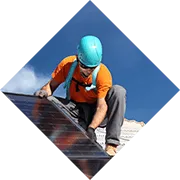Impact of Rain on Solar Panel Performance and Efficiency Insights
The Efficiency of Solar Panels in Rainy Conditions
Solar panels, also known as photovoltaic (PV) cells, have gained significant attention in the quest for renewable energy sources. These systems convert sunlight into electricity, which can be used in homes, businesses, and even for charging electric vehicles. However, many potential users often wonder about the efficiency of solar panels in less-than-ideal weather conditions, especially during rain. This article will explore how rain affects solar panel efficiency and the advantages of operating solar systems during these conditions.
Understanding Solar Panel Efficiency
Solar panel efficiency refers to the percentage of sunlight that is converted into usable electricity. Modern solar panels typically have an efficiency rating between 15-22%. Factors influencing efficiency include the angle of the panels, shading, dirt accumulation, and, notably, weather conditions.
The Role of Rain in Solar Panel Performance
At first glance, one might assume that rain would hinder the performance of solar panels by reducing the amount of sunlight available for conversion
. However, several studies have shown that rain can actually have a positive impact on the efficiency of solar panels.1. Cleaning Effect Over time, solar panels can accumulate dirt, dust, and debris, which can obstruct sunlight and reduce efficiency. Rain acts as a natural cleaning mechanism, washing away dirt and grime. After a rainfall, many users report increased performance as the panels are cleared of accumulated obstacles, allowing for better light absorption.
solar panel efficiency in rain

2. Temperature Regulation Solar panels operate more efficiently at cooler temperatures. High heat can cause a decrease in output, while rain can provide a cooling effect. During rainy days, the ambient temperature tends to be lower, which can enhance the overall performance of the panels despite the decreased sunlight.
3. Diffused Light Rainy and overcast conditions can lead to diffused sunlight, where light is scattered in various directions. While the intensity of direct sunlight may be reduced, solar panels are still capable of capturing and converting this diffused light into electricity. Some studies suggest that PV panels can maintain a reasonable level of output during cloudy or rainy days, utilizing the available light effectively.
Power Generation on Rainy Days
Contrary to popular belief, solar panels can still generate a notable amount of electricity on rainy days. The output will not match that of sunny conditions, but studies have shown that many systems can operate at around 10-25% of their peak efficiency during overcast weather. This means that, while solar panels do rely heavily on sunlight, they remain functional and can contribute to energy generation even when the weather is less than optimal.
Conclusion
In conclusion, while rain may reduce the intensity of sunlight, it does not negate the effectiveness of solar panels. In fact, rain can improve efficiency in several ways, including cleaning the surface of the panels, cooling them down, and taking advantage of diffused light. These benefits contribute to the resilience and reliability of solar energy systems, demonstrating that they are a viable option for renewable energy generation throughout varying weather conditions.
For potential solar panel users, understanding the dynamics of how rain impacts efficiency can alleviate concerns about performance during wet weather. As more homeowners and businesses invest in solar technology, it is essential to recognize that the adaptability of solar panels to different environmental conditions plays a crucial role in their overall energy output. The future of solar energy appears bright, even when the skies are gray.
-
Unlocking Energy Freedom with the Off Grid Solar InverterNewsJun.06,2025
-
Unlock More Solar Power with a High-Efficiency Bifacial Solar PanelNewsJun.06,2025
-
Power Your Future with High-Efficiency Monocrystalline Solar PanelsNewsJun.06,2025
-
Next-Gen Solar Power Starts with Micro Solar InvertersNewsJun.06,2025
-
Harnessing Peak Efficiency with the On Grid Solar InverterNewsJun.06,2025
-
Discover Unmatched Efficiency with the Latest String Solar InverterNewsJun.06,2025







